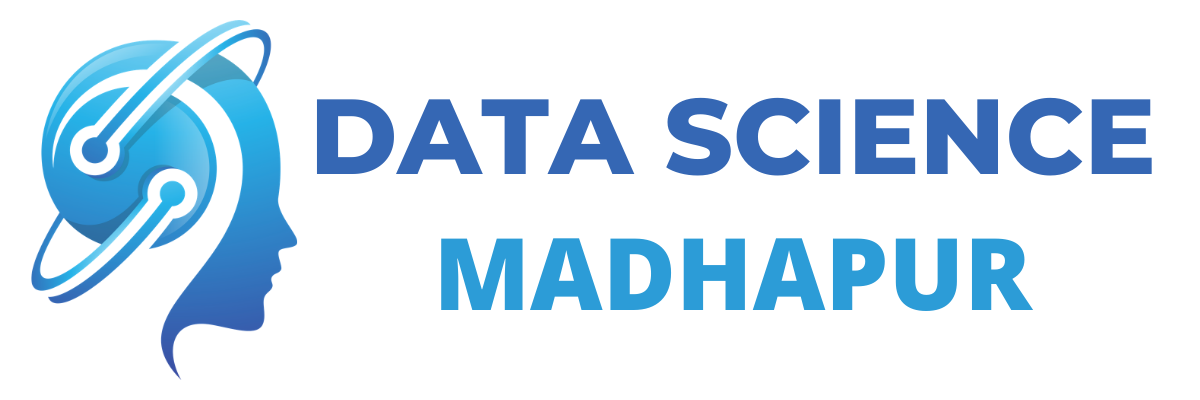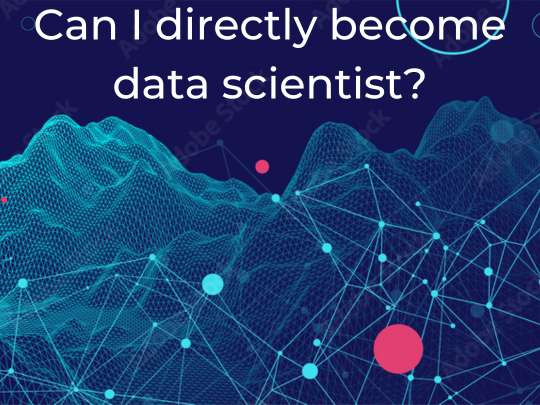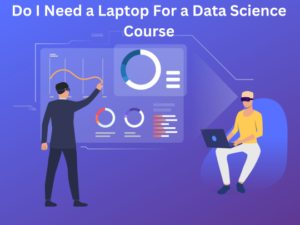Becoming a data scientist typically requires a combination of education, skills, and practical experience. While it is possible to pursue a direct path towards becoming a data scientist, it may require a structured approach and a solid understanding of the necessary knowledge and tools. Here are some steps you can take:
Education:
Obtain a degree in a relevant field such as computer science, statistics, mathematics, or data science. While a degree is not always mandatory, it can provide a solid foundation of knowledge.
Learn the core concepts of Data Science Course video on Youtube:
Gain foundational knowledge:
Familiarize yourself with key concepts and tools in data science, such as programming languages (Python, R), statistics, data manipulation, data visualization, and machine learning algorithms. Online courses, tutorials, and textbooks can help you acquire these skills.
Practical experience:
Gain hands-on experience by working on real-world data projects. Start with small projects to apply your knowledge and build a portfolio that showcases your skills. Participating in Kaggle competitions or contributing to open-source projects can also be beneficial.
Wish to pursue career in data scientist? Enroll in the Data Science Certification to start your journey.
Specialize:
Data science is a broad field with various subdomains. Identify the areas that interest you most, such as machine learning, natural language processing, computer vision, or data engineering. Acquiring specialized skills can make you more competitive in the job market.
Networking:
Connect with professionals in the data science community, both online and offline. Attend conferences, meetups, and webinars to learn from experts and expand your professional network. Engaging with others in the field can provide valuable insights and opportunities.
Looking forward to becoming Data scientist? check out the Data Science Course with Job Guarantee in Bangalore and get certified today.
Continuous learning:
Data science is a rapidly evolving field, so it’s important to stay up-to-date with the latest developments. Follow blogs, research papers, and online communities to keep learning and enhancing your skills.
Build a strong foundation in mathematics and statistics:
Data science heavily relies on mathematical and statistical concepts. Enhance your understanding of areas such as linear algebra, calculus, probability, and hypothesis testing. This knowledge will help you better grasp the underlying principles of data analysis and machine learning algorithms.
Kickstart your career by enrolling in this Best Data Science Course in Hyderabad with Placement.
Master programming languages and tools:
Data scientists commonly use programming languages like Python or R for data analysis and model development. Familiarize yourself with these languages, as well as popular libraries and frameworks like NumPy, Pandas, Scikit-learn, and TensorFlow. Additionally, learn SQL for data querying and database management.
Explore data visualization techniques:
Data visualization is crucial for effectively communicating insights and findings. Learn how to create compelling visualizations using libraries like Matplotlib, Seaborn, or ggplot. Gain an understanding of different chart types, best practices for visualizing data, and how to choose appropriate visualizations for different scenarios.
Wish to pursue a career in data scientist? Enroll in this Best Data Science Course with Placement in Pune to start your journey.
Gain practical experience with real-world datasets:
Seek opportunities to work with real-world datasets from various domains. Practice data cleaning, preprocessing, and feature engineering techniques. This hands-on experience will deepen your understanding of the challenges and nuances involved in working with data.
Pursue advanced coursework or certifications:
Consider enrolling in specialized data science programs, bootcamps, or online courses that offer in-depth instruction on advanced topics. Additionally, there are several reputable certifications, such as those offered by Microsoft, IBM, or Coursera, which can validate your skills and knowledge.
Pursue a career in Data science with the number one training institute 360DigiTMG. Enroll in the Best Data Science Course in Chennai to start your journey.
Collaborate on projects and contribute to the data science community:
Engage in collaborative projects or join online communities where you can contribute to data science initiatives. Collaborating with others can help you gain valuable insights, expand your knowledge, and showcase your abilities.
Stay informed about industry trends:
Follow the latest trends, research, and advancements in data science. Subscribe to relevant newsletters, blogs, and forums to stay up to date with emerging techniques, tools, and methodologies.
Tailor your resume and prepare for interviews:
Customize your resume to highlight your relevant skills, experience, and projects. Prepare for data science interviews by practicing common technical questions, demonstrating your problem-solving abilities, and being familiar with common data science algorithms and techniques.
Participate in Kaggle competitions:
Kaggle is a platform that hosts data science competitions. Participating in these competitions allows you to apply your skills to real-world problems, learn from others, and benchmark your performance against other data scientists. It’s a great way to gain practical experience and showcase your abilities to potential employers.
Develop a strong understanding of machine learning:
Machine learning is a core component of data science. Dive deeper into machine learning algorithms, both supervised and unsupervised, and learn how to apply them to solve different types of problems. Understand concepts like model evaluation, hyperparameter tuning, and model deployment.
Explore big data technologies:
In today’s data-driven world, dealing with large-scale datasets is becoming increasingly important. Familiarize yourself with big data technologies such as Apache Hadoop, Spark, and distributed computing frameworks. Understanding these technologies and how to work with them will give you an edge in handling big data challenges.
Enhance your communication skills:
Data scientists not only work with data but also need to effectively communicate their findings to stakeholders. Develop strong communication and storytelling skills to convey complex ideas in a clear and concise manner. Practice presenting your analyses and insights to both technical and non-technical audiences.
Seek internships or work on freelance projects:
Practical experience through internships or freelance projects can provide valuable industry exposure and enhance your professional network. Look for opportunities to work with organizations or clients on data-related projects, as this can further strengthen your skills and demonstrate your ability to apply data science techniques in real-world scenarios.
Stay updated with ethical considerations:
Data science comes with ethical responsibilities. Stay informed about data privacy, bias, fairness, and ethical considerations in data collection, analysis, and model deployment. Understanding these issues and incorporating ethical practices in your work will make you a more responsible and well-rounded data scientist.
Continuously build your portfolio:
As you work on projects, continue adding them to your portfolio. Highlight your contributions, the problems you solved, and the impact you made. A strong portfolio of diverse and impactful projects will serve as evidence of your skills and can help you stand out during job applications.
Data Science Placement Success Story
Stay connected with the data science community:
Join online forums, discussion groups, and social media platforms dedicated to data science. Engage in discussions, ask questions, and share your knowledge. Connecting with fellow data scientists can provide valuable insights, networking opportunities, and access to resources that can further accelerate your learning.




